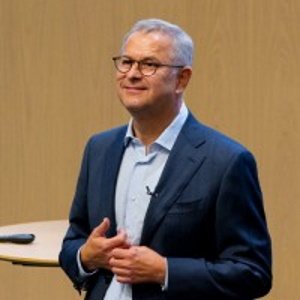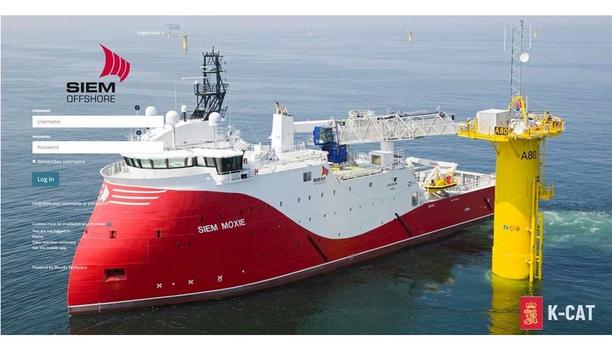First-quarter results
“In the first quarter of the year, A.P. Moller - Maersk again delivered profitable growth. Operating earnings increased by 23% year-on-year, and cash return on invested capital increased by 3.5 percentage points to 10.5%."
"The strong results were made during a quarter with sharp fuel cost increases derived from the industry’s switch to low-sulphur fuel and on the backdrop of a contraction in global trade due to lockdowns in most regions. From the beginning of the COVID-19 crisis our focus has been on the health and well-being of our employees, on supporting our customer’s businesses and the societies we are part of,” says Søren Skou, CEO of A.P. Moller - Maersk.
Acquisitions in Q1 2020
The usage of digital services increased significantly as customers benefit from managing their supply chains remotely
Earnings before interest, tax, depreciation, and amortisation (EBITDA) improved 23% to USD 1.5bn compared to Q1 last year and the EBITDA margin increased to 15.9%. Revenue increased slightly to USD 9.6bn, despite lower volumes and mainly driven by Ocean. While earnings continued to grow, the product offerings kept expanding in line with the strategy of supporting customers’ supply chain end-to-end.
The acquisition of Performance Team, a US-based warehouse and distribution company, and a cold store construction in St. Petersburg, Russia were completed during Q1. Furthermore, the usage of digital services increased significantly as customers benefit from the convenience of managing their supply chains remotely. The Maersk app for example experienced an 86% increase in usage.
Integrated and digitised global logistics company
“The transformation of A.P. Moller - Maersk from a diversified conglomerate to becoming a focused, integrated and digitised global logistics company continues to be validated also in this quarter, as we are serving our customers, connecting and digitising their supply chains, while also growing earnings and free cash flow in difficult circumstances,” says Søren Skou.
Return on invested capital after tax (ROIC), last twelve months, grew to 3.8% as earnings improved and invested capital was reduced. Free cash flow was USD 506m after capitalised lease payments and gross capital expenditures excluding acquisitions (CAPEX) was at USD 310m compared to USD 778m in Q1 2019, reflecting ongoing strong capital discipline.
Optimisation incapacity
For Q2, Maersk will continue measures to mitigate the impact of declining demand
In Ocean, EBITDA increased 25% to USD 1.2bn in Q1 2020 and the EBITDA margin of 16.3% increased from 13.4%, driven by factors compensating for the increase in fuel prices following the implementation of IMO 2020, including a positive result from the self-supply bunker strategy and adjustments in capacity mitigating the lower volumes related to COVID-19.
More than 90 sailings were blanked, leading to a decline of 3.5% in Maersk’s average deployed capacity in Q1. For Q2, Maersk will continue measures to mitigate the impact of declining demand. Unit cost at fixed bunker decreased by 2.3%, mainly due to optimisation in capacity, which offset the lower volumes.
Strong financial position
In the landside businesses, Logistics & Services excluding the freight forwarding business, improved EBITDA to USD 69m from USD 49m. Infrastructure, which covers Terminals & Towage, and Logistics & Services, but excluding freight forwarding, reported a decrease in revenue to USD 2.1bn compared to USD 2.3bn in the same period last year due to lower revenue following COVID-19.
Net interest-bearing debt was nearly unchanged at USD 12.0bn which was positively impacted by free cash flow but offset by payments for annual dividends and share repurchases. Along with the investment-grade rating and solid liquidity reserves of USD 9.2bn, it underlines the company’s strong financial position.
As announced in February, Patrick Jany has joined the Executive Board as CFO of A.P. Moller - Maersk as of 1 May 2020. Patrick Jany comes from a position as CFO and member of the Executive Committee of Clariant AG, Switzerland.
Guidance for 2020
we expect volumes in Q2 to decrease across all businesses, possibly by as much as 20-25%.
The suspension on full year guidance for 2020, announced on 20 March, remains, as the COVID-19 pandemic continues to lead to material uncertainty in the coming quarters. “Looking into Q2 2020, visibility remains low as a result of the COVID-19 pandemic."
"We continue to support our customers in keeping their supply chains running, however as global demand continues to be significantly affected, we expect volumes in Q2 to decrease across all businesses, possibly by as much as 20-25%. 2020 is a challenging year, but as we proactively respond to lower demands and show progress in our transformation and financial performance, we are strongly positioned to weather the storm,” says Søren Skou.
Global market demand
The global market growth in demand for containers is expected to contract in 2020 due to COVID-19 (previously between 1-3% growth). Organic volume growth in Ocean is expected to be in line with or slightly lower than average market growth.
The accumulated guidance on CAPEX for 2020-2021 on USD 3.0 – 4.0bn is unchanged, with steps being taken to reduce CAPEX in 2020. A high cash conversion (cash flow from operations compared to EBITDA) is expected for both years.











